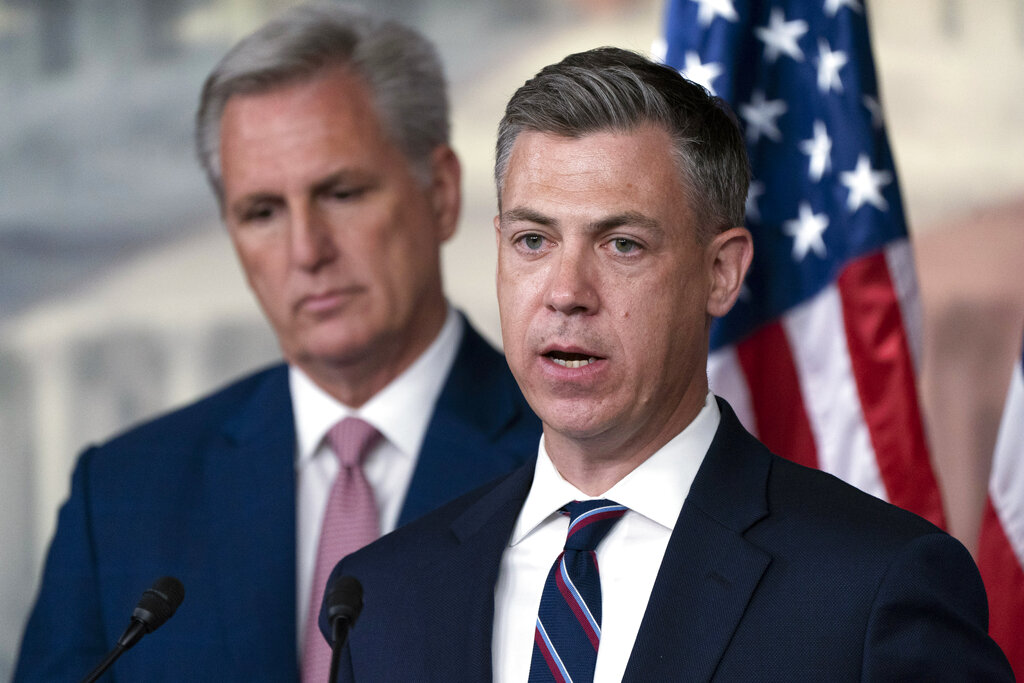Particularly, Mississippi has been dominantly Republican for more than a decade, but like many other states, Steven Utroska of the State Freedom Caucus Network says it is not conservative enough.

As a guest on AFR's "At The Core" program, Utroska recently said his organization is trying to turn the situation around, "whether that's cutting red tape for adoption, trying to allow people an easier route to adopt, [or] cutting down on expenses from the government side of that," he noted about post-Roe efforts in The Magnolia State.
Last April, just before the Supreme Court officially overturned the court decision that had erroneously found a right to abortion in the U.S. Constitution, Governor Tate Reeves (pictured above) signed the Pregnancy Resource Act (House Bill 1685) into law, authorizing a tax credit for donations to a pregnancy resource center or crisis pregnancy center eligible to receive funding distributed by the Choose Live Advisory Committee. Still, Utroska's organization thinks more can be done on that front.
Another issue with which the State Freedom Caucus Network is concerned is Medicaid expansion, as the state legislature considers extending the program for a year after a woman gives birth.
"Medicaid expansion is not the answer to that," says Utroska.
The group, which fights federal overreach and stands against those in both parties who prioritize political power over representing constituents, will also fight for school choice as well as abandoning the income tax.
"I homeschool my own kids," Utroska shared. "I believe in freedom of Christians, especially to be able to educate our children apart from the state, apart from the government. Pastor Voddie Baucham, one of my favorite pastors, he said … we can't continue sending our kids to Caesar and be surprised when they come home as Romans."
Utroska reasons that if people are being taxed to pay for education, then they should be able to decide how their children are educated.

Meanwhile, Environmental Social Governance (ESG) policies are becoming the norm for Mississippi's investments, citizens' college savings accounts, and the state's pension system. Supporters say it is about making a better home and planet for everyone, but critics, including a state financial officer, call it a backdoor attempt to regulate without the federal government's assistance.
Talking about this on AFR's "At The Core" program, Mississippi Treasurer David McRae (R) warned that while ESG policies have focused on things like oil and coal production, agriculture could soon be the next big target.
"Banks are going to start coming after agriculture and start saying how many heads of cattle you can have, how many lands of timber you can cut at a time, or what you can do," McRae predicts.
He pointed out that it is already happening in some European countries.
"The EU (European Union) has put in ESG policies and is not allowing them to cut as much timber, which has created a crisis," the Mississippi treasurer cited. "Also it's created a food crisis because they've had a cut-down on how many heads of cattle you can have. These are serious problems and eventually will come here to Mississippi and will be a problem here."
Agriculture, nearly a $10 billion industry, is the number-one industry in Mississippi and is responsible for nearly 18% of jobs there. McRae notes that the industry has been more attuned to environmental changes than almost anyone else, as the health of soil and the ecosystem directly impacts them. But he also warns that the politically correct ESG metrics could result in fewer farms "at a time when the world is increasingly calling on rural America to meet the needs of hungry families."














